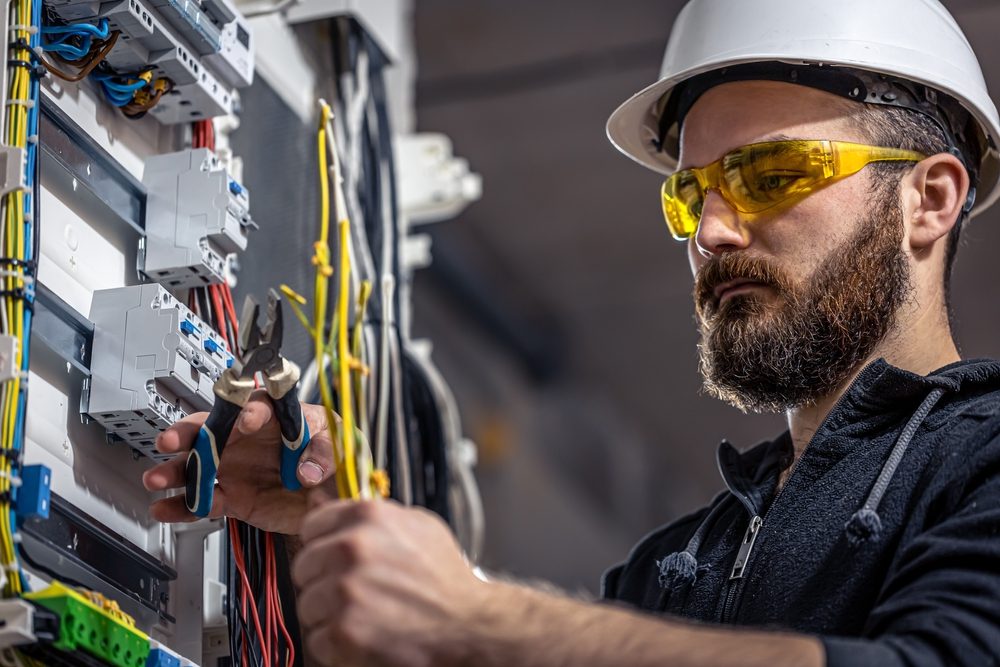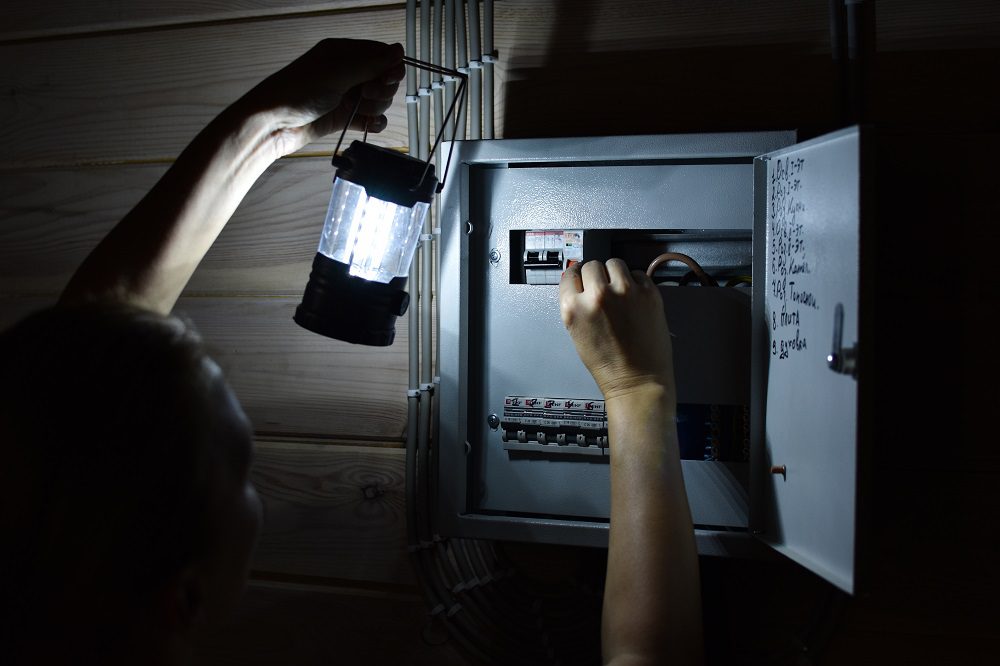Charlotte homeowners tend to call an electrician for two reasons: something stopped working or something started worrying them. Both deserve quick attention. A small issue like a warm outlet in Dilworth can become a scorched box by next week. A tripped AFCI in Ballantyne can point to a nicked wire behind drywall. This guide explains typical repair costs in Charlotte, what a handyman can and cannot legally do in North Carolina, and the three big categories of electrical problems. It aims to save time, money, and hassle, and to help decide when to search for electrical repair Charlotte and book a licensed electrician.
The cost picture in Charlotte, NC
Service calls in the Charlotte area usually include an initial diagnostic fee plus parts and labor. Most homes see costs in these ranges:
Small fixes often run 150 to 350 dollars. Examples include replacing a failed GFCI in a bathroom, swapping a cracked switch in a Myers Park condo, tightening neutral terminations in a panel that caused flickering in Plaza Midwood, or installing a listed pigtail to stop backstabbed outlets from heating. These jobs tend to wrap up within an hour or two.
Moderate repairs land between 350 and 950 dollars. Common cases include replacing a bad circuit breaker that won’t reset in a SouthPark townhouse, correcting double-lugged neutrals, replacing a shorted section of NM cable to a kitchen circuit, or bringing an outdoor receptacle up to code with a new in-use cover and GFCI protection. These jobs often involve some troubleshooting time, patching drywall, or permit filing for specific corrective work.
Larger repairs and safety upgrades often fall in the 950 to 2,500 dollar range. Examples include partial rewires of an older Elizabeth bungalow where cloth wiring shows brittle insulation, replacing a burned meter base after a storm in Steele Creek, or adding a whole-home surge protector with panel reconditioning. These jobs may need permits, utility coordination, and an inspection.
Panel replacements and major service upgrades commonly run 2,500 to 5,500 dollars or more depending on amperage, grounding upgrades, meter location, and coordination with Duke Energy. Homes in older neighborhoods sometimes need mast or meter relocation to meet today’s clearance rules.
Numbers vary with access, material quality, and code updates. Homeowners can ask for a clear scope before work begins. A reputable Charlotte electrician will walk through the line items, explain whether a permit is needed, and note any optional upgrades worth doing while the panel is open.
What a handyman can do in North Carolina
North Carolina law is strict about who can perform electrical work. The state requires a licensed electrical contractor for most electrical installations and repairs. A handyman without an NC electrical license cannot legally install new wiring, extend circuits, replace panels, or modify fixed wiring. Insurance and safety risk aside, it can also fail city inspection and cause issues at resale or during a claim.
Acceptable handyman tasks generally stop at non-electrical items such as replacing light bulbs, mounting a non-wired fixture like a plug-in sconce, or adjusting cabinet hardware after an electrician installs under-cabinet lighting. Once a job involves disconnecting branch circuit conductors, working inside a service panel, or changing a hardwired device, a licensed electrician should handle it.
In Charlotte, inspectors look for permits on panel swaps, new circuits, EV charger circuits, generator interlocks, hot tub feeds, and significant rewiring. Simple one-for-one device replacements may not need a permit, but they still benefit from a licensed electrician who knows about AFCI/GFCI protection requirements and equipment listing rules. If a handyman quotes a panel change or a new circuit, that is a red flag.
The three main electrical problem types
Electrical issues fall into three buckets: overloads, faults, and poor connections. Almost every service call maps to one of these, even if the symptoms seem odd.
Overloads happen when a circuit carries more current than it was designed for. Space heaters on a 15-amp bedroom circuit in University City are a classic trigger. Breakers trip, or lights dim when a vacuum starts. The fix may be as simple as redistributing loads across circuits or as involved as adding a new dedicated circuit to the garage freezer. AFCI breakers can trip under heavy motor starts if wiring is marginal, so an electrician checks both load and wiring health.
Faults include short circuits and ground faults. A screw through a cable during a kitchen remodel in NoDa can cause instant breaker trips. GFCI outlets in bathrooms and on exterior circuits trip when a hot conductor touches a grounded surface, even through moisture. Diagnosing faults involves isolation: unplug everything, test continuity, and open devices until the faulted segment reveals itself. Repairs may include replacing damaged cable, correcting miswired devices, or upgrading to weather-resistant, properly covered outlets outside.
electrical repair CharlottePoor connections produce heat, flicker, and mystery behavior. Loose neutrals can cause lights to brighten in one room and dim in another in older Montford homes with shared neutrals. Backstabbed receptacles tend to loosen over time, especially under space heater loads. Aluminum branch wiring found in some 1960s homes needs special connectors and antioxidant compound. The remedy is to tighten torques to spec, move backstabbed conductors to screw terminals, install listed Al/Cu connectors, or replace worn devices. Infrared scans sometimes help spot hot spots in panels and large junctions.
How an electrician diagnoses problems in Charlotte homes
Good troubleshooting blends code knowledge with pattern recognition. In a 1990s Ballantyne home, a tripping GFCI that protects garage outlets often relates to a freezer or moisture in an exterior box in the same circuit path. In a 1950s ranch in Madison Park, persistent flicker under load points to aging switch loops or loose neutrals. Newer construction in Berewick may show nuisance tripping from AFCI breakers if staples crushed a cable during rough-in.

Electricians start with non-invasive checks: verify the complaint, inspect the panel for heat marks, double-lugs, and correct breaker types, and test outlets for correct polarity and GFCI/AFCI function. Next, they isolate the affected circuit, open suspect devices, and look for burnt insulation, loose wirenuts, or corroded terminations. They measure voltage drop under load and check grounding and bonding. A clear process often shortens billable time and avoids guesswork.
Code updates that affect repairs
Two areas come up often during electrical repair Charlotte service calls: protection and grounding.
Protection means GFCI and AFCI. Kitchens, bathrooms, laundry areas, garages, outdoor outlets, and basements require GFCI protection. Many living areas now require AFCI protection. When replacing a receptacle or breaker, an electrician may recommend upgrading protection to meet current standards even if the original installation predated the rule. It costs more up front but prevents shock and arc-related fire. Homeowners sometimes balk at the price of AFCI breakers, which can be 35 to 60 dollars each. The alternative is higher risk and frequent nuisance trips from marginal wiring that would benefit from correction anyway.
Grounding and bonding matter for safety and surge protection. Older homes may lack a proper grounding electrode system or have corroded clamps on water lines. Surge protectors work better with a solid ground path. During a repair, adding a ground rod or correcting the bond can make the whole system safer and reduce future damage.
What homeowners can check before calling
A few quick steps can save a trip or make the visit faster:
- Identify what stopped working and when. Note if it failed after rain, after plugging in a heater, or during renovations. Check GFCI outlets in bathrooms, kitchen, garage, and exterior. Press reset and test again. Look at the panel for a tripped breaker. Some breakers trip to a middle position. Turn fully off, then on. Unplug everything on the dead circuit, then test again. A bad appliance often trips protection immediately. Note unusual smells, warm outlets, buzzing at a switch, or scorch marks. Share that with the electrician.
If anything smells like burning plastic or a device feels hot to the touch, switch off the related breaker and call right away. Do not open the panel if untrained.

Repair vs replace: making the call
Small, isolated faults are worth repairing. A single failed GFCI or a worn switch does not signal systemic issues. Repeated nuisance trips, widespread flicker, or heat at multiple devices hint at bigger problems. Homes with original 60-amp or 100-amp service feeding modern loads often benefit from a panel and service upgrade. Aging cloth-insulated wiring that crumbles during minor repairs suggests planning a phased rewire, room by room, to spread cost.
Cost context helps. Replacing one scorched receptacle might cost 175 dollars. Opening three more to verify tightness and move backstabbed conductors to screws could add 150 dollars and prevent a future call. Many homeowners choose this incremental step. If a panel shows rust, hot spots, or obsolete breakers, a replacement prevents hidden costs later, especially for insurance and resale.
Local details that affect scheduling and price
Charlotte weather and housing stock drive certain patterns. Afternoon thunderstorms push surges and water into weak points, so exterior GFCIs and meter bases are common calls in summer. Renovations in pre-1970 homes around Plaza Midwood and Elizabeth often uncover junction boxes buried behind drywall, which takes time to correct to code. Newer builds in Highland Creek and Steele Creek have AFCI requirements throughout many areas, so the right breaker type matters. HOA rules can affect exterior meter and conduit placement. Duke Energy coordination can add days to panel or service work, so planning ahead avoids long outages.
Why choose a licensed local electrician
A licensed Charlotte electrician brings code familiarity, parts on the truck that match area brands, and relationships with local inspectors. That speeds approvals and avoids return trips. They set torque wrenches to manufacturer specs, label panels clearly, and document repairs with photos for insurance. Homeowners feel the difference later, when a quick breaker replacement does not turn into a repeat call.
Ewing Electric Co focuses on electrical repair Charlotte for homeowners who want the job handled cleanly and safely. The team explains options in plain terms, shows the issue before and after, and prices the fix before starting. Same-week scheduling is common for most neighborhoods, with emergency slots for no-power or unsafe conditions.

Ready to solve the problem
If an outlet is warm, a GFCI keeps tripping, or the panel smells off, it should be checked now rather than next month. Share the symptoms, the neighborhood, and any recent changes in the home. Ewing Electric Co will quote a clear diagnostic visit and get a licensed electrician on site across Charlotte, including Dilworth, SouthPark, Plaza Midwood, Ballantyne, NoDa, University City, Steele Creek, and nearby towns like Matthews and Huntersville.
Search electrical repair Charlotte or call Ewing Electric Co to schedule a visit. A short diagnosis today prevents a larger repair tomorrow.
Ewing Electric Co provides dependable residential and commercial electrical services in Charlotte, NC. Family-owned for over 35 years, we handle electrical panel upgrades, EV charger installation, generator installation, whole-home rewiring, and 24/7 emergency repairs. Our licensed electricians deliver code-compliant, energy-efficient solutions with honest pricing and careful workmanship. From quick home fixes to full commercial installations, we’re known for reliable service done right the first time. Proudly serving Charlotte, Matthews, Mint Hill, and nearby communities.
Ewing Electric Co
7316 Wallace Rd STE D
Charlotte,
NC
28212,
USA
Phone: (704) 804-3320
Website: https://ewingelectricco.com/ | Google Site
Social: Facebook | Instagram | Twitter
Map: View on Google Maps